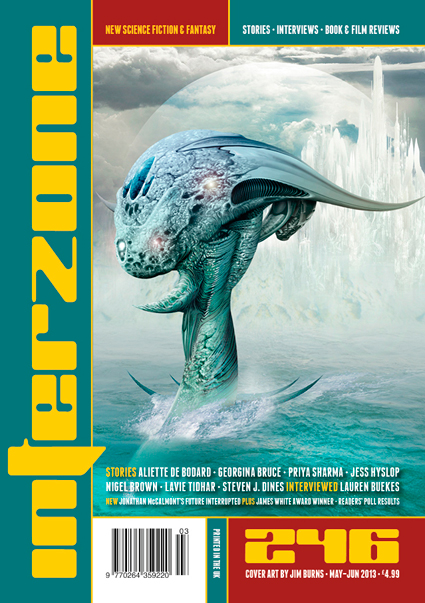There are writers who are still pissed off that the ebook ever happened. If you’re one of them, you probably shouldn’t read this post. It’ll only upset you. Because there are also writers who are already well over the ebook and looking for the next big thing. They think it’s our responsibility to find new and innovative ways to deliver fiction via digital platforms. These are the writers who say the novel is dying, and who want to be in the vanguard of the next big literary form.
See, for example, LitHacking, in which, potentially, a narrative is revealed to the reader via seemingly-genuine facebook updates, tweets, amazon reviews, the comments to blog posts and news articles, etc. See also The Silent History, which is advertised as ‘an entirely new kind of novel,’ though essentially, it’s just an ebook with optional ‘field reports’ that you can only release if you travel to the exact locations they’re set – in other words, an ordinary novel with some fancy/annoying add-ons. And that’s about it, as far as examples go. And maybe that’s as far as they’ll ever go – but then again, maybe not.
Tech-savvy writers say the novel should be more interactive. (As if readers don’t already interact with novels.) But how interactive? When does a digital text stop being a story and start becoming a game? I would argue that LitHacking is a kind of game. The Silent History is a novel with a built-in game. And if that is where we’re heading, why this clinging to the old forms at all? Why not just say, the novel is dead – long live the computer game?
But there’s something else about these innovations that is less clearly understood, and that is how they blur the line between fiction and reality. Consider LitHacking. Not only does it create fake artefacts, but by doing so it calls into question the reality status of every other piece of text in its field. How would you know if a comment on a news article was a genuine opinion or a carefully placed clue in a puzzle? How would you interact with the internet if you were constantly unsure of the reality of what you were reading? LitHacking is ambitious, that’s for sure – take this logic to the extremes and you have a world wide web of fiction, with writers/hackers controlling everything from the sale of goods to the exchange of love letters.
A literary revolution, yes – perhaps more dramatic than any previously proposed. Its ultimate effect is to make reality less trustworthy. In The Secret History, when you want to download a ‘field report’ you have to go to the exact location specified. You are physically completely interacting with the story in a real setting.This is not virtual reality. It’s difficult to know what’s real and what’s story if the story is taking place around you, outside your head and inside it at the same time.
And if that’s the case, how real are you, the reader? What happens to your ability to create and participate in the real world as a naive individual? When do you stop being a reader and start being a player? When do you start being a character? When does that begin to happen against your will? Or is it already happening? And what does that mean in terms of your capabilities and responsibilities?
But there’s something else that goes beyond this. Not only does this make reality less real, but by blurring the boundaries of story/reality, it makes fiction less fictional. The project of fiction has historically been to increase, deepen, intensify and enlighten reality. It has made us more human, connected us to the real world outside of our heads, shown us the reality of other humans who exist or existed before us. By forcing fiction into existing reality, do we run the risk of losing that expansionist vision of what stories are for? Do we ruin stories by making everything a story?
This all seems very avant-garde, but advertisers already use the internet in much the same way that LitHackers propose writers should: creating fake reviews for books and products, using comments to push sales, creating youtube videos in the hope that they’ll go viral. What’s to stop advertisers intervening in LitHack narratives in order to promote their products? What’s to stop businesses setting up shop in the exact locations where readers congregate to download ‘field reports’? And when does this complicated exchange go too far? Will writers be pushed aside by salespeople? And is there anything in these new forms – any idea of artistry, politics, reality – that can protect us from that?



